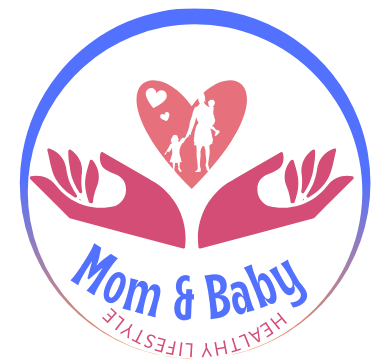Nutrition During Pregnancy: 5 Key Tips for a Healthy Baby
Proper nutrition during pregnancy is the cornerstone of a healthy baby and a smooth pregnancy journey. A healthy diet, combined with hydration and prenatal supplements, supplies the nutrients your baby needs for brain and spinal cord development while maintaining your health. In this guide, discover the importance of eating well, avoiding risky foods like smoked seafood, and taking 400 micrograms of folic acid to prevent birth defects of the brain and spine.
Table of Contents
Why Is Nutrition During Pregnancy Important?

Your body undergoes significant changes during pregnancy to support your baby’s growth. These changes increase your need for critical nutrients, including those essential for brain development and overall health. Proper nutrition ensures:
- Fewer birth defects: Sufficient folic acid intake prevents major defects of the brain and spine.
- Better energy levels: A nutrient-rich diet keeps fatigue at bay.
- Improved health outcomes: Supports both maternal and infant health.
How Many Extra Calories Do You Need?
Pregnancy requires about 300 extra calories per day to support your baby’s growth. Focus on getting these calories from nutrient-dense foods such as:
- Lean proteins: Meat, poultry, eggs, beans, and tofu.
- Fruits and vegetables: Spinach, carrots, bananas, and oranges.
- Whole grains: Quinoa, oatmeal, and whole-grain bread.
- Sources of calcium: Low-fat milk, yogurt, cheese, or fortified plant-based alternatives.
Tip: Avoid processed snacks or empty calories and prioritize quality over quantity.
The Role of Folic Acid in Pregnancy
Taking 400 micrograms of folic acid daily before conception and throughout pregnancy is essential to prevent birth defects of the brain and spine, such as neural tube defects.
Best Sources of Folic Acid:
- Leafy greens: Spinach, kale, broccoli.
- Fortified cereals: Many breakfast cereals are enriched with folic acid.
- Citrus fruits: Oranges, grapefruits.
- Prenatal supplements: Ensure daily intake with a healthcare-approved vitamin.
Consult your health care provider if you have specific conditions requiring higher doses.
Key Nutrients for Nutrition During Pregnancy
Iron
- Supports red blood cell production for oxygen delivery to your baby.
- Sources: Meat, poultry, fish, beans, and fortified cereals.
Calcium
- Essential for your baby’s bones, teeth, and brain development.
- Sources of calcium: Milk, yogurt, cheese, and fortified plant-based alternatives like almond milk.
Protein
- Helps build tissues and supports rapid growth.
- Sources: Eggs, lean meats, nuts, beans, and seeds.
Omega-3 Fatty Acids
- Promotes your baby’s brain development and eye health.
- Sources: Salmon, trout, walnuts, and flaxseeds.
Vitamins and Minerals
- Vitamin D: Supports bone health and immunity (milk, fatty fish).
- Vitamin A: Assists in cell growth (carrots, sweet potatoes).
- Zinc: Boosts immunity (seafood, beans).
Best Foods for Nutrition During Pregnancy
Eating a variety of nutrient-rich foods ensures your baby gets what they need for healthy growth and brain development. Include:
- Vegetables: Spinach, carrots, sweet potatoes, tomatoes.
- Fruits: Bananas, oranges, mangoes, and apricots.
- Proteins: Beans, peas, lean meats, and low-mercury fish like salmon or trout.
- Sources of calcium: Low-fat milk, yogurt, and fortified plant-based alternatives.
Foods to Avoid During Pregnancy
Certain foods can harm your baby’s growth and development. Avoid these to stay safe:
- Unpasteurized dairy products: These may contain harmful bacteria.
- Smoked seafood: May harbor dangerous bacteria if not cooked to a safe temperature.
- Raw or undercooked meat and poultry: Increases the risk of foodborne illnesses.
- High-mercury fish: Avoid swordfish, king mackerel, and shark.
- Alcohol: Even small amounts can negatively impact your baby.
Staying Hydrated During Pregnancy
Proper hydration supports increased blood volume and helps prevent complications like constipation or swelling.
- Drink 8–10 glasses of water daily.
- Include hydration from soups, fresh juices, and milk.
- Limit caffeine and sugary beverages.
Tip: Staying hydrated is key to both your comfort and your baby’s development.
The Role of Prenatal Supplements
While a healthy diet is crucial, prenatal vitamins ensure you meet additional nutrient requirements, particularly for folic acid, iron, and calcium. These supplements work alongside balanced meals to ensure your baby’s brain and spinal cord grow properly.
Safe Food Handling Tips
To reduce the risk of foodborne illness during pregnancy, follow these guidelines:
- Wash: Rinse all fruits and vegetables thoroughly.
- Cook: Use a food thermometer to verify that meats and seafood are fully cooked.
- Chill: Refrigerate leftovers promptly.
- Avoid cross-contamination: Keep raw meats separate from ready-to-eat foods.
How to Manage Weight Gain with Proper Nutrition During Pregnancy
Healthy weight gain supports your baby’s development and depends on your pre-pregnancy weight:
- Underweight: Gain 28–40 pounds.
- Normal weight: Gain 25–35 pounds.
- Overweight: Gain 15–25 pounds.
Tip: Avoid excessive weight gain or dieting, as both can harm your baby.
The Long-Term Benefits of Good Nutrition
Adopting a healthy diet during pregnancy has lasting benefits:
- Reduced complications: Lowers the risk of gestational diabetes and preterm labor.
- Improved postpartum recovery: Encourages faster healing.
- Family habits: Promotes healthy eating for your family’s long-term wellness.
Proper nutrition during pregnancy is vital for your baby’s brain development and overall health. Focus on a healthy diet rich in key nutrients, stay hydrated, and take 400 micrograms of folic acid daily to prevent birth defects of the brain and spine. Avoid risky foods like smoked seafood and follow safe food handling practices.
By prioritizing your diet, you’re building a strong foundation for your baby’s health and enjoying a smooth pregnancy journey. Small, consistent efforts make a big difference embrace this special time with informed, balanced choices.

